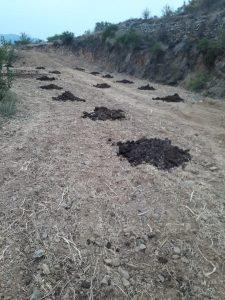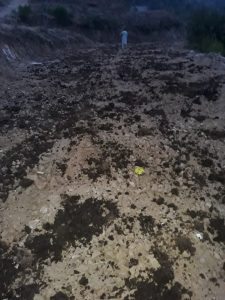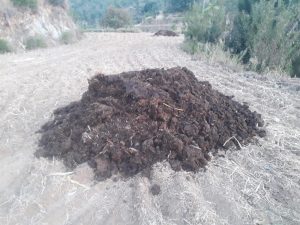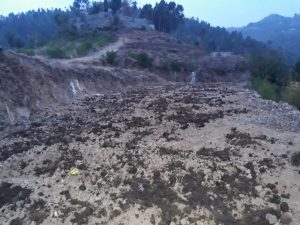Day of the Landless 2021, Joint Statement
Today, Day of the Landless, we – farmers and peasants, poor farmhands, agricultural workers, contract farmers, Dalits, rural women and youth, and land reform advocates across Asia – vow to further our resolve in fighting against landlessness. Landlessness breeds social injustice, hunger, and impoverishment. Landlessness is a bane to farmers and all the people of the world.
Now more than ever, we are ready to link arms to assert our right to land and genuine land reform in our respective countries and across the region. We are determined to espouse and achieve rural development to transform the world’s food systems dominated by corporate monopolies. We will work hard for a better world wherein the majority of the population is unbound from hunger and exploitation.
We are uniting under the Asian Peasant Coalition (APC) to call an end to corporate control in agriculture and food systems. It is unacceptable that farmers and food producers who feed nations do not have access to land and are food insecure as a result of land and resource grabs and of global monopolies in agricultural production and trade.
The COVID-19 pandemic that ravaged the world in 2020 further exposed the profit-oriented nature of global food systems as it drove millions of people into chronic hunger. By the end of 2019, at least 8.9 percent of the world’s population, or 690 million went hungry. By the start of 2020, hundreds of millions of people continue to suffer acute food insecurity as they face conflict, climate change, and economic crises of epic proportions.
As of October 2020, a staggering seven million people have died of hunger. Pandemic-related hunger also led to the deaths of 10,000 more children each month over the first year of the health crisis. Forecasts even warned about multiple famines in the coming months as the lowest-income households are most likely to face increased hunger. Strict lockdown policies and quarantines have affected all stages of food supply, resulting in a steep rise in food prices and widespread food insecurity.
Hunger and poverty of Asian peasants and sectors in agriculture are among the direct results of centuries-old landlessness. Large-scale land deals and acquisitions — land grabs led by corporations have dispossessed and displaced farmers from the land they till. Millions of hectares of land planted with staples, grains, and other food crops, as well as indigenous lands, and public lands were land grabbed and converted into plantations, extractive mining projects, and farms devoted to export cash crops. Governments have become willing accomplices in these land grabs through public-private partnerships that take away land, water, and other natural resources from the people.
Profits keep pouring into the pockets of the few as the majority of peasants and their families endure worsening landlessness and land grabs amid a pandemic.
Farmers who assert land rights are faced with attacks either from local landlords, big corporations, and even government agencies. Peasant killings and other forms of brutalities against farmers happen on a daily basis.
In the past years, we have also witnessed the strengthening domination of corporations over the agriculture and food sector. We have seen mega-mergers and multi-billion deals between companies that have control over the seed market, agrochemicals, fertilizers, farm equipment and machineries, and the entire chain of food production. Conglomerates today have a tighter control of the world’s food production and distribution. They have made a profitable empire while trampling upon the lives and livelihoods of farming families and the rural people.
Deepening poverty ravages the world’s countryside as appropriate, indigenous, and collective knowledge and practices on agriculture are suppressed by agrochemical transnationals. Employing the most compassionate words and imageries, these monopolies violently impose their economic models over the peoples of the world for the singular purpose of maximizing profits. The toiling people of rural areas are increasingly cut off from their own countrymen as imported seeds, inputs, machines, and agricultural products deluge their local markets. At the same time, through coercion or force, peasants are increasingly “integrated” into the “global value chain” as cheap sources of raw materials and docile labor, and as captive dependent markets. As the people’s food sovereignty is continually undermined, there can be no genuine rural development.
Yet, even during the pandemic, we have seen the rising up of people’s movements to assert democratic and socio-economic rights. Mass protests and people’s strikes have swelled across countries. In Asia, the largest mobilizations we have seen in recent months are of India’s farmers, taking to the streets in hundreds of millions, to oppose and protest neoliberal agricultural laws that will make them more vulnerable to a few powerful corporations.
We are alarmed that ongoing efforts to address the rising global hunger and poverty through the upcoming UN Food Systems Summit will only end up in legitimizing and further advancing tighter imperialist control over food and agriculture. The overall direction that the preparations and discussions by those leading the UN Summit are leading towards the greater use of harmful and contentious technology like genetic engineering and digital agriculture. Solely motivated by maximum profits, these technologies are designed to consolidate and expand the presence and powers of big agribusiness in determining how the world should produce food.
In contrast, there are no meaningful discussions or even space to address the structural issues underlying hunger and poverty such as the landlessness and lack of effective control over the means of production by farmers and other rural sectors that directly produce the world’s food. Instead, the push in the UN Summit is to further expand monopoly capital and profits through greater liberalization, privatization, and deregulation that will drive hundreds of millions of farmers and rural people into more landlessness, bankruptcy, and impoverishment.
Thus, we call on the courageous peasant movements in Asia to organize and mobilize for our own people’s summit together with other marginalized and oppressed sectors that suffer the gravest hunger and poverty because of imperialist control and domination over the world’s food and agriculture. We must create our own spaces and assert our own voice in how a radical transformation of food and agricultural systems can and should take place.
We will actively support and lead the Global People’s Summit for Just, Equitable, Healthy and Sustainable Food Systems that would bring to the fore the peasant’s aspirations and struggles for land and genuine agrarian reform. For the people’s summit to truly make an impact, it must be built on an ever-growing and strengthening peasant and people’s movements on the ground fighting for systemic change that will pave the way for development that is truly for the people and truly sustainable.
Farmers and peasants can settle for nothing less than genuine land reform and rural development towards the true transformation of the world’s food systems. We recognize that the key to this transformation are solid people’s organizations and a global mass movement, the only real spring of change amid a decaying world order. #





